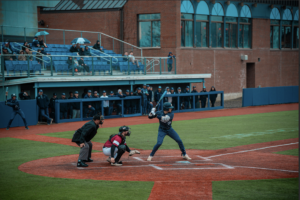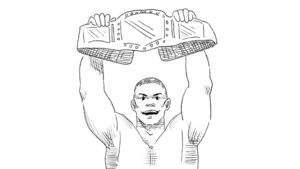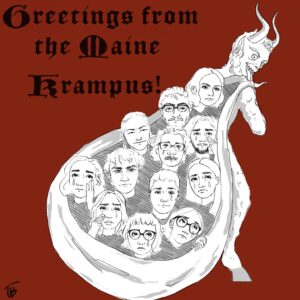The spring of 2020 sparked a resurgence of racial justice movements on a national level as a result of police officers publicly killing a number of unarmed Black people, including George Floyd and Breonna Taylor, which brought national attention to the issue of police brutality. Public opinions surged in favor of social justice movements, including the Black Lives Matter movement, after reports of unwarranted brutal force used by police officers surfaced and highlighted the biases that affect many Black and Indigenous people of color (BIPOC). The dialogue surrounding disenfranchisement of BIPOC provided a glimpse into the broader issues of police brutality and systemic racism that affect many aspects of people’s everyday lives. As a response, the Raymond H. Fogler Library at the University of Maine launched their own Racial Justice Challenge. This initiative aims to start the painful and sometimes uncomfortable conversations surrounding these issues and teaches its participants how to be anti-racist.
“[We] created the Racial Justice Challenge as an asynchronous, online program. It was a weeklong program, and each day for five days, people who signed up received an email with several tasks designed to learn, listen, share ideas, and take action around issues of race, racism, and antiracism,” Jen Bonnet, Madelyn Woods and Anila Karunakar, leaders for the program, said. “For example, we explored how to be anti-racist (versus “not racist”), examined issues of race in the media, and by the end of the week, participants created an individualized antiracism action plan to help them continue their work.”
Many are concerned that highlighting racial injustices in the United States was only a fleeting moment and not a movement with momentum behind it. Bonnet believes this will not be the case for the Racial Justice Challenge.
“We heard from people who were taking the challenge with friends, family members, faith groups and peers,” Bonnet shared. “Doing this work with others can help us keep each other accountable and maintain momentum. And, importantly, day five of the challenge provides people with a template to create a personal antiracism action plan based on what each participant wants to commit to changing, tackling or dismantling. This is intended to help people see antiracist work as a long-term, enduring commitment [as well as recognize] that self-care is important to maintain that commitment).”
The idea of being anti-racist comes from a scholar named Ibram X Kendi who feels that there is no room for neutrality when it comes to racism, and hence, there can be no such thing as being “not racist.” Kendi believes that one is either firmly anti-racist or engaging in harmful racist behavior.
Karunakar explains that the conversations around race can appear daunting to people. She says many people attended diversity and inclusion training with her before the school year, but instead of striving to learn how to actively be anti-racist inside the classroom, people wanted a quick overview of how to act and behave, not a lengthy conversation fueled with emotions.
“There are a lot of people who are afraid to engage in discussions around race,” Karunakar explained. “This fear fuels the distance. A lot of white and white-passing folks lack the language, education and skills when it comes to race. They also lack the opportunities to learn. The process of learning and unlearning is vital if we are committed to be[ing] agents of social change — to be anti-racist.”
According to Karunakar, people, especially white people, need to be willing to change their thinking and accept their privilege while listening to the voices of people of color in their communities. This is the only way people can attempt to create a better future.
“My hope is that the challenge is one of many ways that all of us, students, staff, and faculty, consider how we as a university can do better and create real, meaningful change regarding racist policies and practices, for instance in what is taught and discussed in the classroom, how we recruit and retain staff and students, how we respond to and combat racist speech, and how we support our colleagues of color,” Bonnet said.
This project aims to make UMaine a safer and more inclusive place for all people, and Bonnet is proud to share that many members of the administration such as Vice President for Student Life and Inclusive Excellence and Dean of Students Robert Dana and President Joan Ferrini-Mundy participated in this challenge.
The intent is that this important work can be continued outside of Fogler Library,
“[I] have been working with the communication and journalism department to create a resource for anyone on campus to use, instructors and students alike, regarding the various ways race, racism and anti-racism are embedded in media, and how one might incorporate racial justice pedagogy in the classroom,” Bonnet said.
If you would like more information or want to participate in the Racial Justice Challenge, it is accessible on Fogler Library’s website at https://libguides.library.umaine.edu/racial-justice










